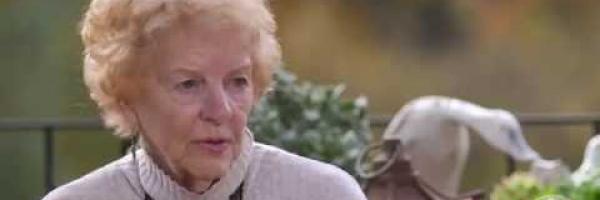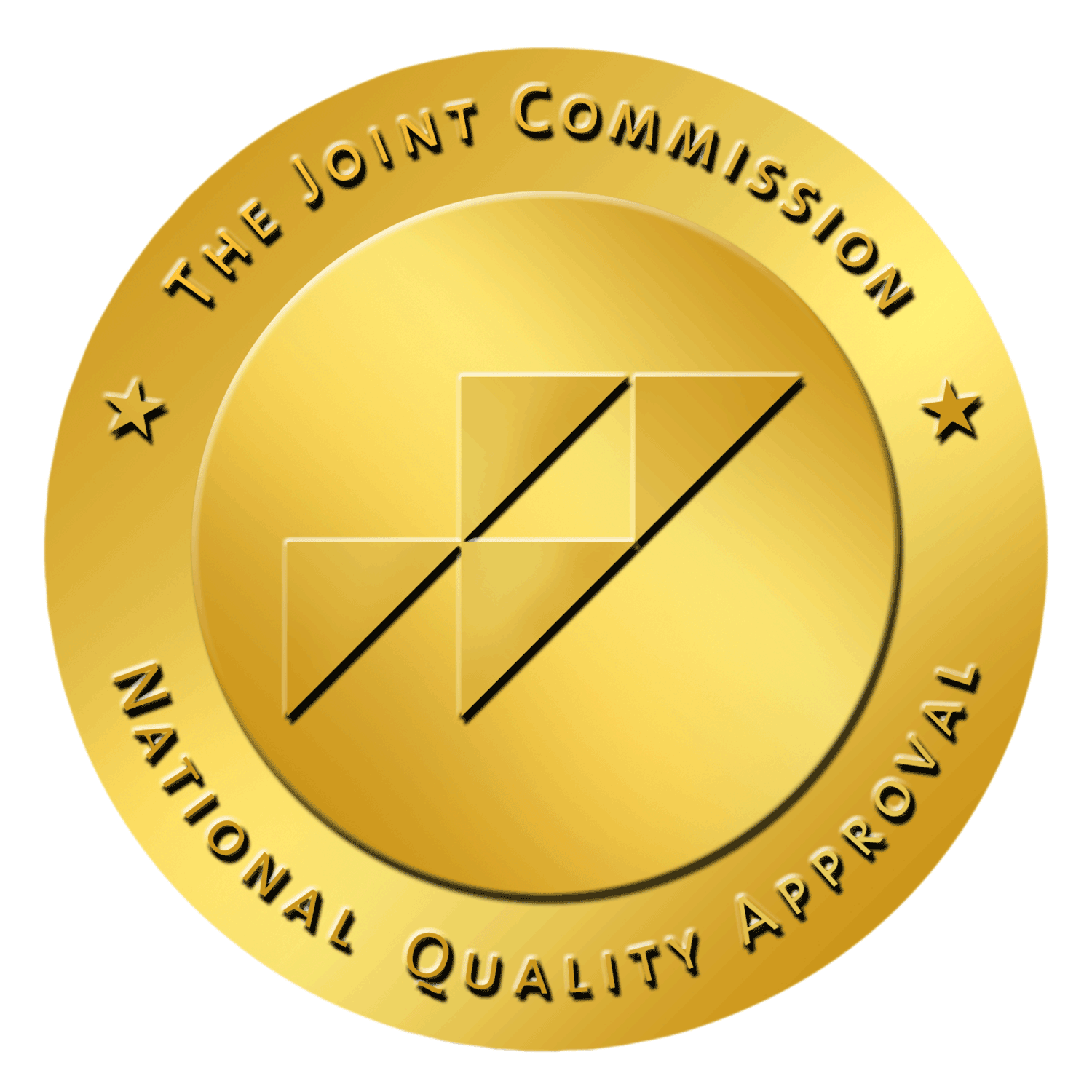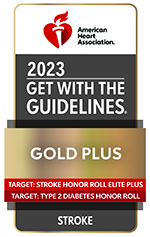You or a loved one could experience a stroke at any time. It's a leading cause of major, long-term disability and death. Act quickly if you observe any of the warning signs listed below.
When you need help, the Peter C. Fung, MD Stroke Center team — including emergency room nurses and doctors, neurologists, interventional neurologists and neurosurgeons — are here to provide you or your loved ones the best chance of recovery. Our award-winning stroke care incorporates rapid response and a dedicated stroke unit that includes state-of-the-art heart and vital signs monitoring equipment.
Learn the Stroke Warning Signs
A stroke, or "brain attack," involves disrupted blood flow to part of the brain. There are many causes and types of stroke, including a blood vessel blocked by a clot (ischemic stroke) or a broken or bleeding blood vessel (hemorrhagic stroke). When your brain doesn't get adequate blood and oxygen, nerve tissue will begin to die within minutes. Every minute matters, because time loss is brain loss.
Stroke symptoms typically happen suddenly. Our stroke experts suggest you learn to recognize stroke signs and symptoms:
G: Gaze. Are you only able to look in one direction, without the ability to look the other way?
F: Face Drooping. Is one side of the face drooping or numb? When asked to smile, is his or her smile uneven?
A: Arm Weakness. Does he or she have weakness or numbness in one arm or leg? Is he or she unable to raise one arm? Does one arm drop down?
S: Speech Difficulty. Is his or her speech slurred or unclear? When you ask the person to repeat a simple phrase, is it repeated incorrectly or is he or she unable to understand you?
T: Time to call 911. If you notice any of these symptoms, or suspect a stroke, even if the symptoms go away, call 911. Get the person to a hospital immediately and note the time when the first symptoms appeared.
Other stroke symptoms, which also typically occur suddenly, may include trouble seeing in one or both eyes, dizziness or loss of coordination, a severe headache, nausea or loss of consciousness.
A stroke is an emergency. If you recognize these symptoms, call 911 immediately. Tell the dispatcher there are symptoms of a stroke.
Elite Stroke Team
You'll find nationally recognized stroke expertise when you need it, right here in the Bay Area. The Peter C. Fung, MD Stroke Center at El Camino Health earned the Gold Seal of Approval for stroke care from the Joint Commission — a symbol of quality, safety and satisfaction for patients and healthcare professionals. Our team is also part of the American Stroke Association's “Get With the Guidelines” (GWTG) Stroke Program. El Camino Health was one of the first hospitals to achieve this recognition.
When you arrive at El Camino Health with stroke symptoms, our stroke specialists will evaluate you immediately. They will pinpoint the location, type, nature and extent of brain injury, based on blood tests, diagnostic and imaging tools, such as CT scans or MRI. Every stroke is unique, and we will tailor our diagnosis and treatment accordingly.
Our specialists consider:
- The type and severity of your stroke.
- Your general health.
- The location of the blocked blood vessel or bleeding within the brain.
- The time elapsed since your stroke symptoms began.
Stroke treatment will depend on these and other stroke evaluation procedures and results. Our experts may give you medications, such as TNK, a drug that is injected into blood vessels to restore blood flow by breaking up the clots that are blocking blood vessels. Seek treatment immediately, since clot-dissolving drugs must be given within three hours — and up to four and a half hours in some patients — from the time when symptoms first begin.
Neurointervention Expertise
Our team includes experts skilled in neurointervention. This sophisticated, state-of-the-art and less invasive treatment approach enhances our ability to identify and treat stroke quickly and effectively.
Rehabilitation
After a stroke or brain injury, you may have trouble with the activities of daily living, such as bathing, eating, walking and talking. Our neurorehabilitation services help you regain lost physical or other abilities and provide emotional support. You'll receive comprehensive care at our Acute Rehabilitation Center.


